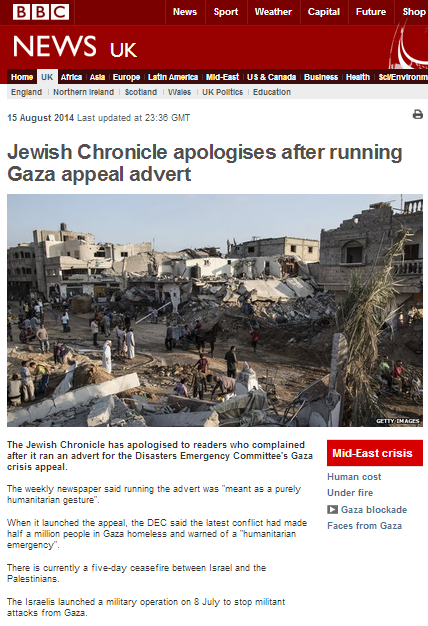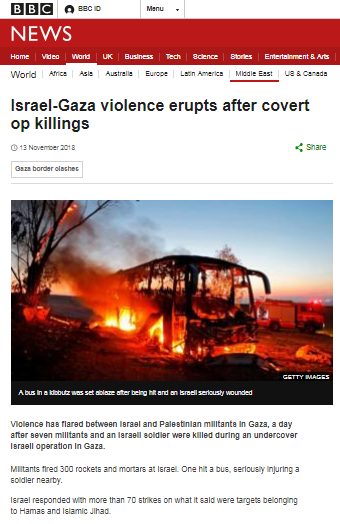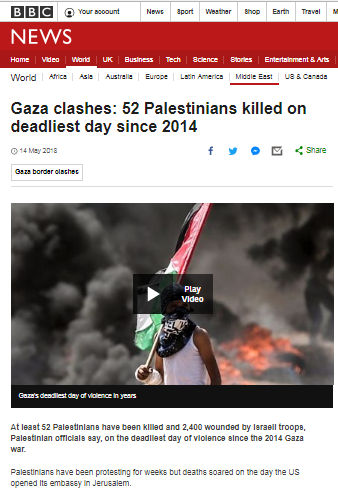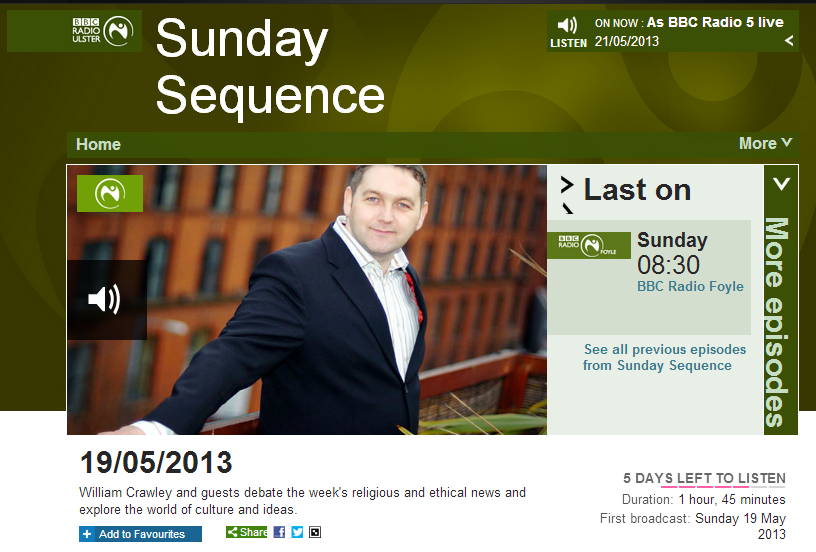On August 15th the BBC News website featured an article titled “Jewish Chronicle apologises after running Gaza appeal advert” on its UK page and also, curiously, on its Middle East page. 
“The Jewish Chronicle has apologised to readers who complained after it ran an advert for the Disasters Emergency Committee’s Gaza crisis appeal.
The weekly newspaper said running the advert was “meant as a purely humanitarian gesture”. […]
Writing on the JC website, editor Stephen Pollard said: “It is a critical part of our editorial independence that we do not allow advertisers to have any influence at all on the paper.” “
The BBC’s article once again cites casualty figures which it has not been independently verified and with no attempt made to advise readers with regard to the sources of those figures and the political agenda of the NGOs which contribute them.
“About 2,000 people have died since the fighting began last month.
Those killed include more than 1,900 Palestinians, mostly civilians, according to the United Nations. Sixty-four Israeli soldiers have been killed in the violence and three civilians in Israel have also died.”
The report concludes as follows:
“In a statement on the DEC’s website on Thursday, addressing the “tone of the debate over Gaza”, chief executive Saleh Saeed said: “The DEC’s launch of a public appeal in response to the humanitarian crisis in Gaza has been wrongly interpreted in some quarters as a political statement.
“It is nothing of the sort. Giving aid is not taking sides.” “
However despite quoting that statement, the article makes no attempt to inform readers that several of the organisations which make up the Disasters Emergency Committee (DEC) do indeed have a history of using their charitable status for anti-Israel political campaigning – among them Oxfam, Christian Aid, World Vision and Save the Children.
Moreover, the original version of the BBC’s report failed to inform readers of concerns raised with regard to the destination of contributions made to the appeal in light of the fact that another DEC member organization – Islamic Relief – has known ties to Hamas, as Saleh Saeed is no doubt well aware seeing as he was employed by that charity until 2012.
The day after its original appearance the article was amended (without any notification to readers) to include the following:
“Meanwhile, Israel’s embassy in the UK issued a statement in which it said its own concern about the DEC appeal “stems from the fact that the list of charities on the DEC includes Islamic Relief Worldwide, which has been designated in Israel recently as an unlawful association, for providing support and funnelling [sic] funds to Hamas, a terror group designated in the UK.
“Surely this must raise cause for concern for the public donating money for children, when one of the donors has been officially declared to be using that money to support a recognized terror group,” it said.”
As that statement points out, in June 2014 Islamic Relief was banned from operating in Israel.
“Defense Minister Moshe Ya’alon signed a decree on Thursday banning Islamic Relief Worldwide from operating in Israel.
Israel believes IRW, which markets itself as a charitable agency that solicits donations from all over the world, funnels cash to Hamas.
Ya’alon’s ban was decided upon after the Israel Security Agency (Shin Bet), the coordinator for government activities in the territories, and legal authorities provided incriminating information against IRW.
The organization has representatives worldwide, including Australia, the United States, and Britain, where it is headquartered. Some of their local branches in Gaza, Judea, and Samaria are run by Hamas operatives.”
One of Hamas’ numerous charitable organisations operating in the Gaza Strip, for example, is Al Falah Benevolent Society which has been the recipient of funds from Islamic Relief in the past. Islamic Relief was one of the founding members of the ‘Union of Good’ – the Muslim Brotherhood’s financial support operation for Hamas founded shortly after the start of the second Intifada in 2000 and headed by Yousuf Qaradawi – which was designated by the US Department of the Treasury in 2008.
The amended version of the BBC’s report also includes a response from Islamic Relief:
“In response, Islamic Relief Worldwide said it “categorically denies any links with Hamas”.
It added: “Islamic Relief Worldwide is regulated in the UK by the Charity Commission and has rigorous internal control and compliance systems in place to ensure we uphold our humanitarian principles of impartiality, independence and neutrality.” “
Unfortunately, Charity Commission regulation is by no means a cast iron guarantee of the absence of ties to terrorist organisations and extremism – as the case of Interpal so miserably demonstrates.
Despite the fact that it is difficult to see how the issue of “public confidence in the BBC’s impartiality” can possibly have changed since 2009, the BBC decided to promote this DEC appeal across its own platforms. Given also that UK tax payers will be contributing to it whether they see fit or not, members of the BBC’s funding public might be of the opinion that the political motivations and possible Hamas connections of some DEC member organisations would be an issue in which BBC journalists should be showing more of an interest.




